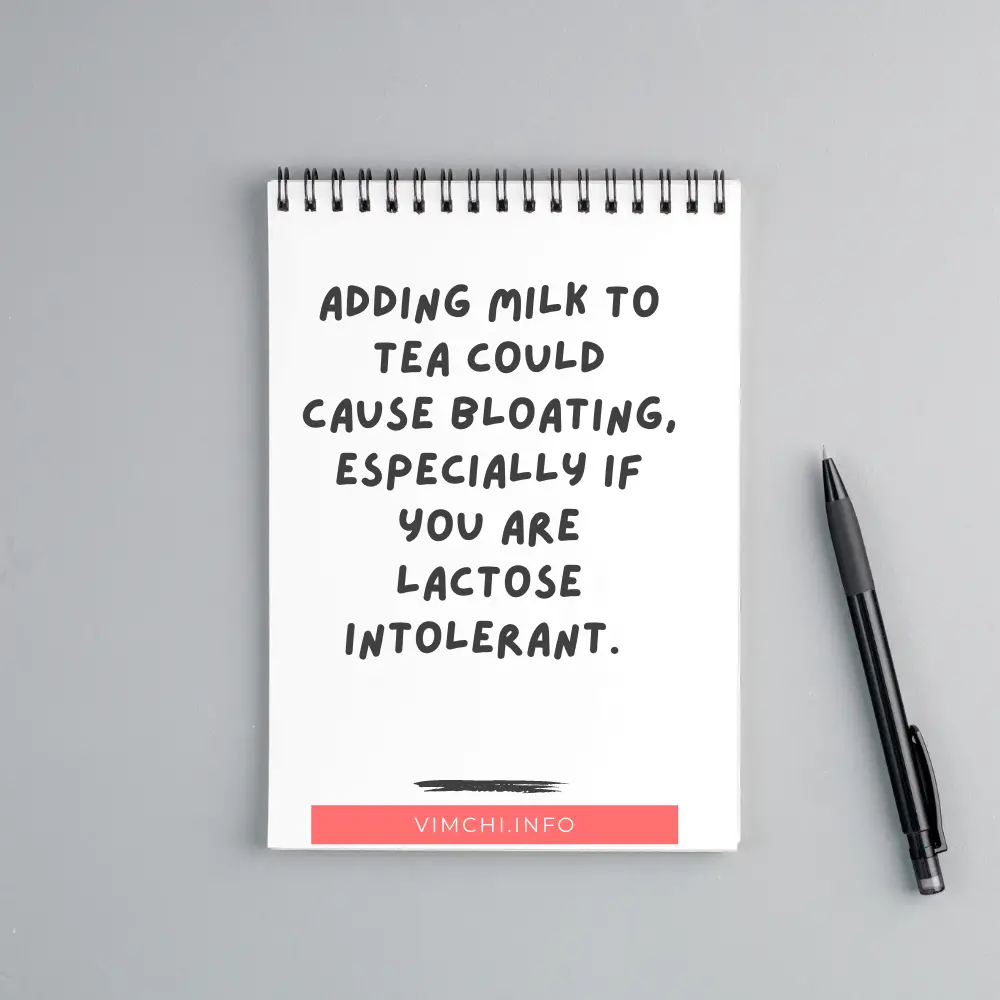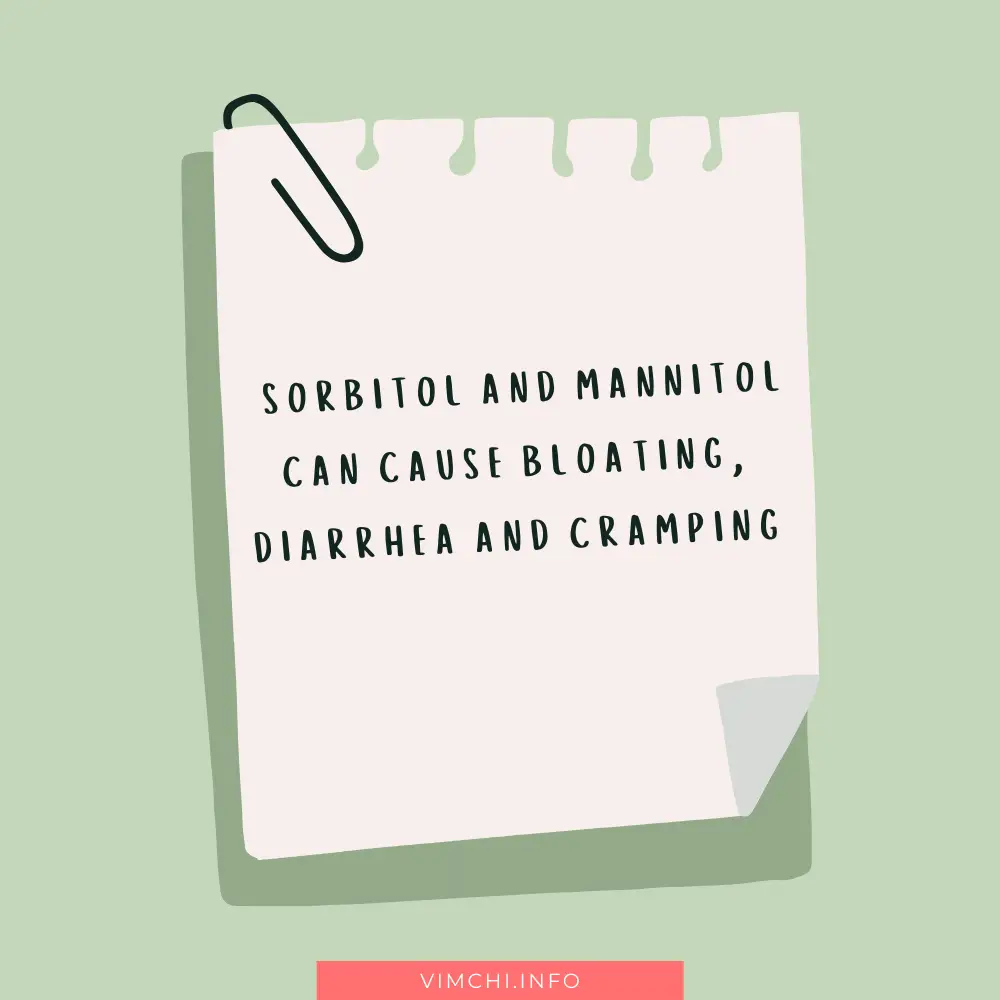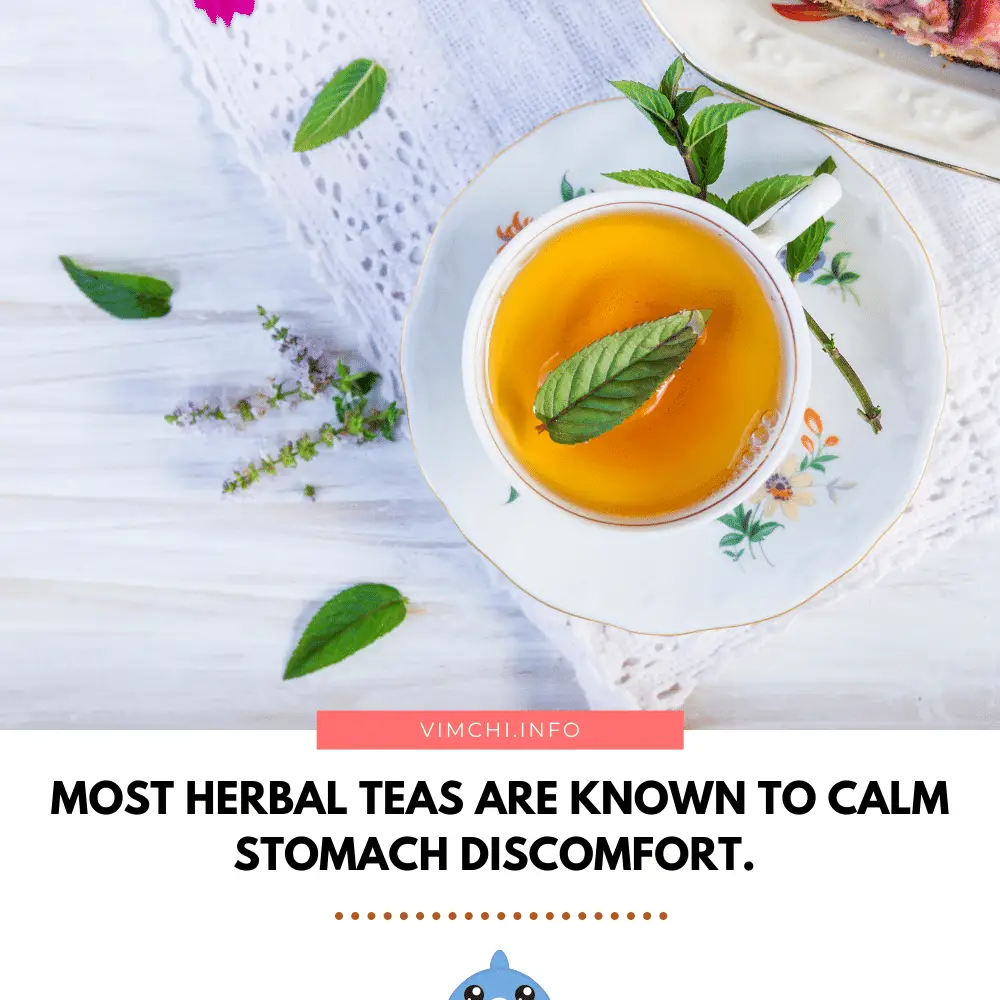For many, herbal tea has become an alternative to coffee to function throughout the day. However, if you drink it in excess, it can lead to indigestion, dehydration, and acid reflux. Can herbal tea make you bloated?

Drinking herbal tea offers more health benefits than causing gastrointestinal discomfort. But no matter how beneficial tea is, if you drink it in excess, it can still cause adverse side effects.
How Can Herbal Tea Make You Bloated?
Our body is made of cells that are full of water. If you drink tea in excess, you are eliminating the water from these cells.
As a result, you’ll be dehydrated. And dehydration can cause stomach discomfort, including bloating.
Furthermore, herbal tea contains tannins. Although they have a massive amount of health benefits, they can still cause acid reflux and gas if you consume them in excess.
The gas can result in bloating in some people.
In that case, if you have a sensitive gut, you should limit your intake of herbal tea. If you suffer from acid reflux, you should avoid teas that are known to cause acidity.
Read: Which Herbal Tea is Good for Acid Reflux?
It May Not Be the Tea

If you experience bloating after drinking herbal tea, it may not be the tea itself that’s causing the discomfort. Did you add milk to the tea?
Adding milk to tea could cause bloating, especially if you are lactose intolerant.
Lactose intolerance is a health condition that arises because of the lack of enzyme lactase. Gas, bloating and diarrhea are just some of its symptoms.
Although the symptoms are uncomfortable, they are considered harmless, in most cases.
Artificial Sweetener — Another Culprit

If you didn’t add milk to tea but you did add artificial sweetener, then the latter is the culprit.
The most common artificial sweeteners that can cause bloating, diarrhea, and cramping are sorbitol and mannitol. They are used in candies and other products.
But if you add aspartame or sucralose to tea, you may not experience bloating.
With that in mind, be careful what you’re adding to your tea. You should drink herbal tea alone. That is, with no sugar or milk.
Benefits of Drinking Herbal Tea

Drinking tea every day can offer many health benefits. But you need to drink it in moderation.
Studies about herbal tea consumption in humans are sparse. But some studies found that tea consumption could help in reducing the risk of type 2 diabetes, heart disease, and premature death.
Herbal tea is rich in polyphenols, which are antioxidants that can prevent the damaging effects of free radicals on the body.
Green tea is said to have higher antioxidant content than black and oolong tea. However, all teas contain the same level.
They only differ in proportions. Green tea contains higher catechins while black tea contains the highest proportion of theaflavins.
Most herbal teas are known to calm stomach discomfort. For instance, peppermint tea can soothe your upset stomach.
Drinking ginger tea can also help with cramping, gas, and indigestion. Chamomile tea is also useful in settling your stomach while it helps you fall asleep.
If you experience constipation, herbalists recommend drinking senna-based tea. It’s a natural laxative. Although it can cause cramping and gas, these symptoms will be resolved eventually.
When you drink tea, make sure to drink it hours before bedtime. Keep in mind that it contains caffeine. If you’re sensitive to this compound, it may hinder your sleep. Furthermore, it may cause jitteriness.
Conclusion
Can herbal tea make you bloated? It can if you drink it in excess. But your bloating may be the result of the milk and artificial sweeteners you add to tea.
If you wish to drink herbal tea that doesn’t cause bloating or that relieves stomach discomfort, you may drink this tea.
Speak Now ... Or Forever Hold Your Peace